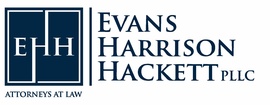EMPLOYMENT LAW ALERT
CAN FRANCHISOR BE HELD LIABLE FOR EMPLOYMENT CLAIMS BROUGHT AGAINST FRANCHISEE?
In Patterson v. Domino’s Pizza, LLC (August 28, 2014), the California Supreme Court examined the extent to which a franchisor may be held liable for unlawful employment activities occurring at a franchisee location. In that case, it was alleged that a male supervisor at the franchisee location sexually harassed a female subordinate. She then sued the supervisor, the franchisee, and the franchisor for sexual harassment under the California Fair Employment and Housing Act (FEHA). The question raised in the Patterson case was whether a franchisor is considered an “employer” for purposes of anti-discrimination law.
The key piece of evidence in the Patterson case was the franchise agreement between Domino’s Pizza and its franchisees. That contract specifically stated that there was no principal-agent relationship between Domino’s and its franchisees, and that the franchisee was an “independent contractor.” The contract also specified that persons working for the franchisee were the employees of the franchisee, and that no employment/agency relationship existed between those employees and Domino’s. In addition, the contract noted that the franchisee was solely responsible for managing its employees.
As a practical matter, moreover, the court found that the franchisee was solely responsible for hiring individuals who worked in its store, and that Domino’s was not involved in the application, interview, or hiring processes. While Domino’s did provide some supplemental training materials for use by the franchisee, the franchisee implemented its own harassment policy and training program for its employees, and Domino’s did not provide materials or training related to workplace harassment.” Employees were also advised to report any workplace concerns directly to the franchisee, and “Domino’s had no procedure for monitoring or reporting sexual harassment complaints between the employees of franchisees.”
In light of these findings, the court held that the franchisor (Domino’s) was not an employer and could not, therefore, be subject to liability for workplace harassment occurring at franchisee locations.
The Patterson case provides some good guidance for franchisors who wish to involve being dragged into employment issues arising at franchisee locations. Obviously, the careful drafting of the franchise agreement can go a long way to clarifying that the franchisor is not an employer of franchisee employees. As a practical matter, moreover, where the franchisor does not exert day-to-day involvement in employment-related matters, it can avoid potential legal exposure under federal and state discrimination laws.
If you have questions about this Employment Law Alert or wish to discuss the impact of this decision upon your business, please do not hesitate to contact Maury Nicely at Evans Harrison Hackett PLLC, 423/648-7851 or mnicely@ehhlaw.com.


